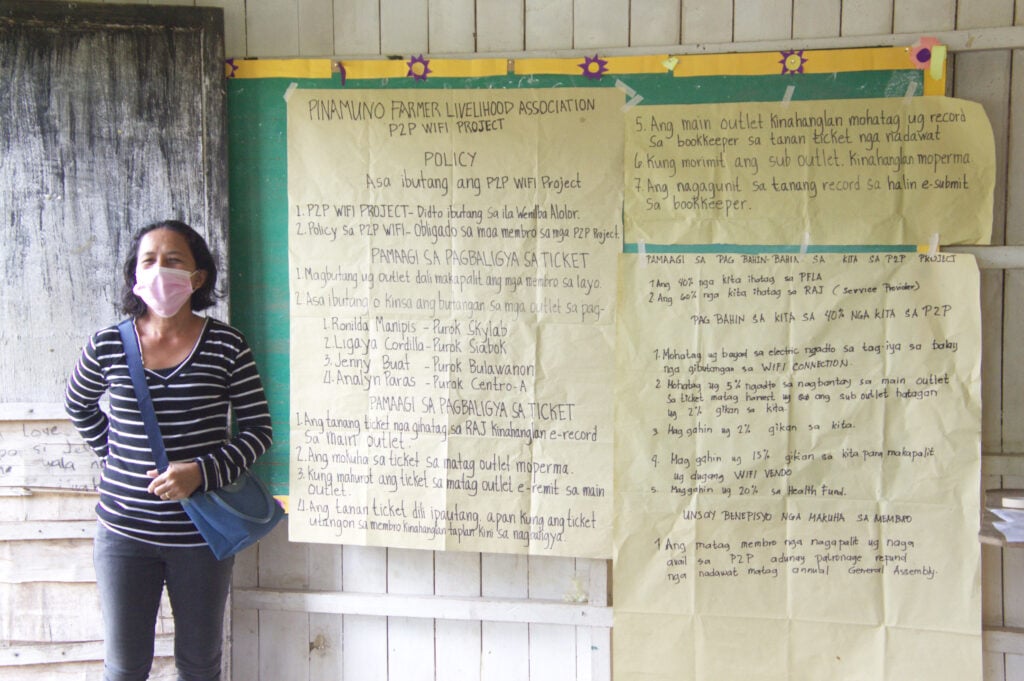Grassroots level community networks and connectivity initiatives often struggle with the ongoing sustainability of their operations. It’s all very well to build a network in an underserved area, but what about long-term?
Who will run it? How will it be maintained? Who, locally, has the necessary expertise? How will it be funded on an ongoing basis to stay operational?
The ISIF Asia-supported Peer to Peer (P2P) connectivity project in San Isidro, the Philippines, by the Davao Medical School Foundation showed how all these key elements can be met while leaving the operations of the network infrastructure in the hands of grassroots community groups.
The project identified People’s Organizations (POs) in four communities and set about establishing a commercially viable means of Internet provision via “vendo” machines, which provided better Internet than the alternatives, at a cheaper price – which also provided the ongoing funds for these POs to run and maintain the infrastructure. For this to happen, each PO needed to work out the policies they would adopt, and also undergo financial training.
Discover more, including a detailed technical report, on the project page.




